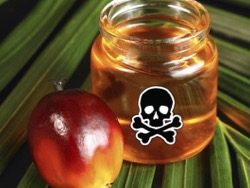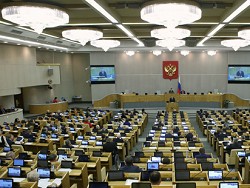
The Agency criticized the idea of Rospotrebnadzor in the introduction of strict clean tropical oils
The Ministry of economic development did not agree with the idea of the CPS to set a new safety record for tropical oils, including palm. The Department emphasizes: the service did not provide scientific data on the risks to human health by eating these oils with the available status.
In mid-February of 2016, the CPS has prepared amendments to the technical regulations of the Customs Union on oil and fat products, which have passed the regulatory impact assessment (RIA) the Ministry of economic development, the documents base on preparation of projects of normative acts regulation.gov.ru. Conclusion the Department is negative, ODS completed on 1 June this year.
In their amendments, the CPS, in particular, offered several times to reduce the maximum level for peroxide value of palm oil used for food production. So, the peroxide number is expected to drop sharply from 10 mEq/kg to 0.9 mEq/kg. Also service wanted to raise the status of the safety record for these types of oils. To reduce peroxide value indicated in the CPS, it follows by further purification of the oil, i.e. refining.
The CPS believes the oil with the number of 0.9 mEq/kg and below the safe, approved for use in the manufacture of products, including baby food. Only oils with the same peroxide number shall be subject to the technical regulations on safety of food products. At a higher rate oil, according to the service shall be deemed to have technical, raw and suitable for other purposes — for example, in the manufacture of cosmetics.
Thus, the service attempts to bring Russian regulations in line with international standards in the field of production, storage, transportation and processing of edible vegetable oils.
However, the Ministry of economic development, such rigid plans are not supported. The office recalls that the author of amendments trying to give a similar value peroxide value the status of the safety record for three years. While the CPS does not provide scientific evidence that there are now health risks in the use of palm, palm kernel and other tropical oils in the food. “Thus, the Ministry notes the lack of sufficient scientific substantiation to establish in regulations restrictive standards in peroxide value of 0.9 mEq/kg,” — noted in the conclusion of ODS.
The Department indicates that the existing “value peroxide value level is not more than 10.0 mEq/kg as one of the indicators pointing to the possibility of using vegetable oils in foods, is an established international norm.” We are talking about the global food standard of Codex Alimentarius, which was established by the international Commission of the FAO (food and agriculture organization of the United Nations, Food and Agriculture Organization, FAO) and the who (world health organization).
The Ministry of economic development cites and European standard Codex Stan 210, which sets the crude oil peroxide number 15 mEq/kg, and for refined — 10 mEq/kg. meanwhile, the international standards do not emit tropical oils in a separate group that requires further attention.
Also offer a CPS value peroxide value at the level of 0.9 mEq/kg two times tougher current regulations on this number for oils designed for baby food. The latter was developed by the Institute of nutrition specifically for the SanPiN requirements for safety and nutrition value of products (SanPiN 2.3.2.1078-01) is valid on the territory of Russia and CIS countries for a long period.
In an oil and fat Union of Russia emphasize that, first, the peroxide number is not an indicator in determining the degree of purification of oils. And secondly, this number may increase depending on the storage time of the oil, which can lead to the necessity of constant refining. Introduction increased 0.9 mEq/kg will create additional barriers for entrepreneurs, confident in the Union.
We will remind that not so long ago the Ministry of economic development and most agree that palm oil is harmful and supported the introduction of excise duty on him, but did not provide any evidence on scientific studies with these conclusions. The Ministry of agriculture, who has repeatedly spoken out against tropical oils, “Izvestia” said that the Ministry has developed amendments to technical regulations of the customs Union on safety of milk and put them for consideration to the Commission, AAEC.
So, we are talking about mandatory labeling of products that contain milk fat substitute. On the front side of the packaging it is proposed to place the label “this Product contains oils, which will take at least 30% of the area of the label. According to the Association of producers and consumers of oil products, in 2015 the oil resources of Russia amounted to 6.1 million tons, total import of tropical oils is 0.9 million tonnes.
The CPS did not comment on the Ministry of economic development, stating that the position of the service is reflected in the explanatory note to the amendments.








